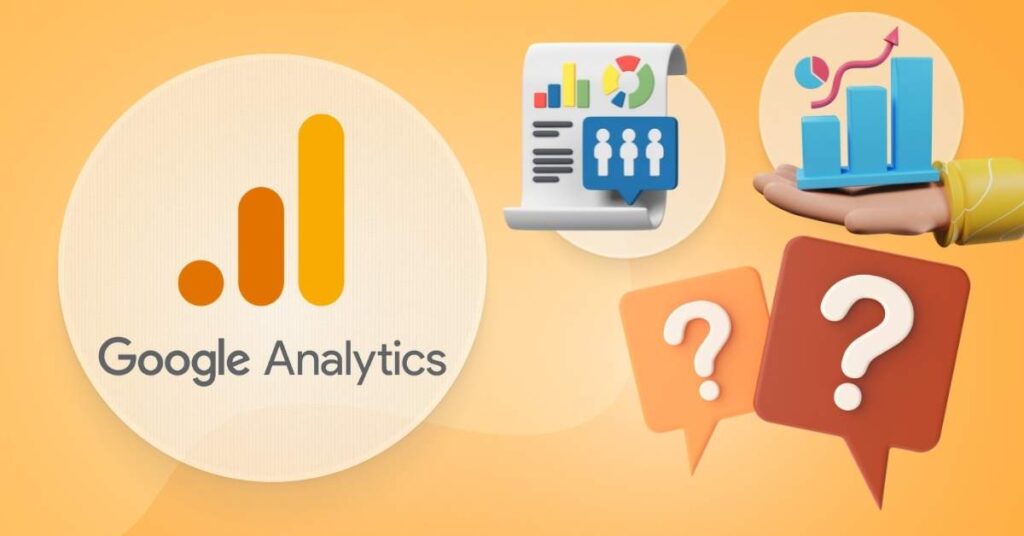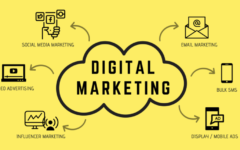Digital Marketing Analytics Tools
July 11, 2024 2024-07-15 9:51Digital Marketing Analytics Tools
Digital marketing analytics tools -Decisions in the current digital era are based on data. Success for organizations depends on having a solid understanding of market trends, client behavior, and campaign performance. This is where analytics tools for digital marketing are useful.
These technologies offer information that can direct future strategy in addition to aiding in the tracking and evaluation of marketing campaign efficacy. Here, we look at a few of the most important digital marketing analytics tools that have the power to completely change how companies run.
Digital Marketing Analytics Tools
Here are Some Analytics Tools,
Google Analytics
A mainstay in the field of digital marketing is Google Analytics. It’s an effective tool that provides in-depth analysis of user behavior and website traffic. Marketers can monitor website users’ origins, paths taken on the site, and actions taken by using Google Analytics.
Furthermore, Google Analytics offers a comprehensive perspective of performance through seamless integration with other Google products, such as Google Ads.
Offering a range of functions for SEO, content marketing, and competitive analysis, SEMrush is a flexible tool. It offers position tracking, backlink analysis, and comprehensive keyword research. Marketers may monitor their brand’s internet presence, find fresh content development chances, and examine the tactics of competitors by using SEMrush.

HubSpot
HubSpot is one of the best examples of inbound marketing and sales platform that has diverse instrumentations for social media marketing, content management, and client relationship management (CRM). One can access comprehensive reports on social media activity, email campaigns, and the website’s performance.
The features of its analytics were simply amazing. Companies who are looking for the most efficient marketing tools that can provide them with information that can make marketing a simpler process have found the right thing in HubSpot and their automation tools.
Adobe Analytics
A powerful tool made for enterprises at the corporate level is Adobe Analytics. It gives marketers comprehensive insights into customer journeys, enabling them to comprehend how customers engage with their brand at different touchpoints.
Businesses can make data-driven decisions using Adobe Analytics’ sophisticated segmentation, predictive analytics, and real-time data visualization. For those working in digital marketing, its connectivity with other Adobe products—like Adobe Experience Manager and Adobe Target—provides a smooth working environment.
Web Analytics Tools in Digital Marketing
The mainstay of online analytics solutions is Google Analytics. It offers an extensive feature set that lets marketers monitor and examine website traffic in great detail.
Adobe Analytics is designed for enterprises looking for advanced analytics solutions at the corporate level. It is excellent at providing in-depth analysis of client journeys through many channels.
In addition to its robust web analytics features, SEMrush is well-known for its SEO and competition analysis skills. SEMrush offers comprehensive data on site audits, backlinks, and organic search performance. Moreover, with the use of its Traffic Analytics tool, marketers can assess how well their website performs.

An open-source web analytics tool called Matomo (previously Piwik) places a strong emphasis on data ownership and user privacy. It provides an extensive feature set, such as tracking user behavior, real-time data, and dashboard customization.
Mixpanel is an expert in tracking user behavior and providing sophisticated information. With the rich insights it offers on user interactions, marketers can comprehend how people interact with their website or application.
Hotjar is a distinct online analytics platform that emphasizes user behavior and experience. To see how people engage with a website, it provides tools like heatmaps, session recordings, and surveys. Moreover, Hotjar’s heatmaps highlight the most clicked, tapped, and scrolled sections of a webpage, revealing user preferences and trouble spots. Additionally, with the help of session recordings, marketers may observe actual user sessions and learn more about user behavior.
Google Analytics Digital Marketing
What is Google Analytics?
Google provides website traffic tracking and reporting through its web analytics service, Google Analytics. Since its launch in 2005, it has grown to be a vital resource for digital marketers everywhere.
Google Analytics gathers information about user behavior and website performance by inserting a tracking code on websites. Consequently, this allows for the provision of comprehensive reports on user demographics, behavior, and other related topics.
Key Features of Google Analytics
Real-Time Data: Google Analytics provides real-time data about the number of visitors on your site, their geographic location, the pages they are viewing, and the actions they are taking. Consequently, this feature is invaluable for monitoring the immediate impact of marketing campaigns or changes to your website.
Audience Insights: Understanding your audience is crucial for effective marketing. Moreover, with Google Analytics offering detailed insights into user demographics, interests, and behaviors, marketers can segment their audience based on age, gender, location.
Acquisition Channels: Knowing how users find your website is key to optimizing your marketing channels. Google Analytics breaks down traffic sources into categories such as organic search, paid search, social media, direct traffic, and referral traffic. This information helps marketers identify which channels are driving the most traffic and conversions.

How Google Analytics Enhances Digital Marketing
In order to improve search engine rankings, provide relevant content, and optimize SEO techniques, this knowledge is essential.
Optimizing PPC Campaigns: Google Analytics connects to Google Ads easily and thus, it offers marketers tons of data on pay-per-click (PPC) campaigns. Advertisers can analyze the effectiveness of their ads.
Enhancing User Experience:One way to improve the overall user experience is by the information that user behavior data gives, which implies the functional problems and the points that the application should be worked on. With information at your disposal about how customers are moving around on your website and precisely where they end up in the process.
Digital Analytics Tool
Digital analytics tools provide the insights necessary to understand customer behavior, optimize marketing campaigns, and measure performance. Consequently, in this blog, we’ll explore the importance of digital analytics tools and highlight some of the most effective options available.
Importance of Digital Analytics Tools
Understanding User Behavior: These useful instruments allow advertisers to monitor and research the activity of the customers and their connection with the website or application.
Measuring ROI: Being aware of the return on investment (ROI) achieved through the campaigning strategies is one of the most significant issues. Furthermore, transitioning to computerized data analysis assists corporations in evaluating their marketing projects and identifying the tools that generate the most returns. This shift enables businesses to make informed decisions based on concrete data rather than assumptions or guesswork.

Digital analytics tools are crucial for e-commerce firms long to be the reliable providers of customer experiences.
One of the main factors to consider is finding the right data reporting tools or instruments if you are to succeed in the elite leaders and maximize the gains of your business.








